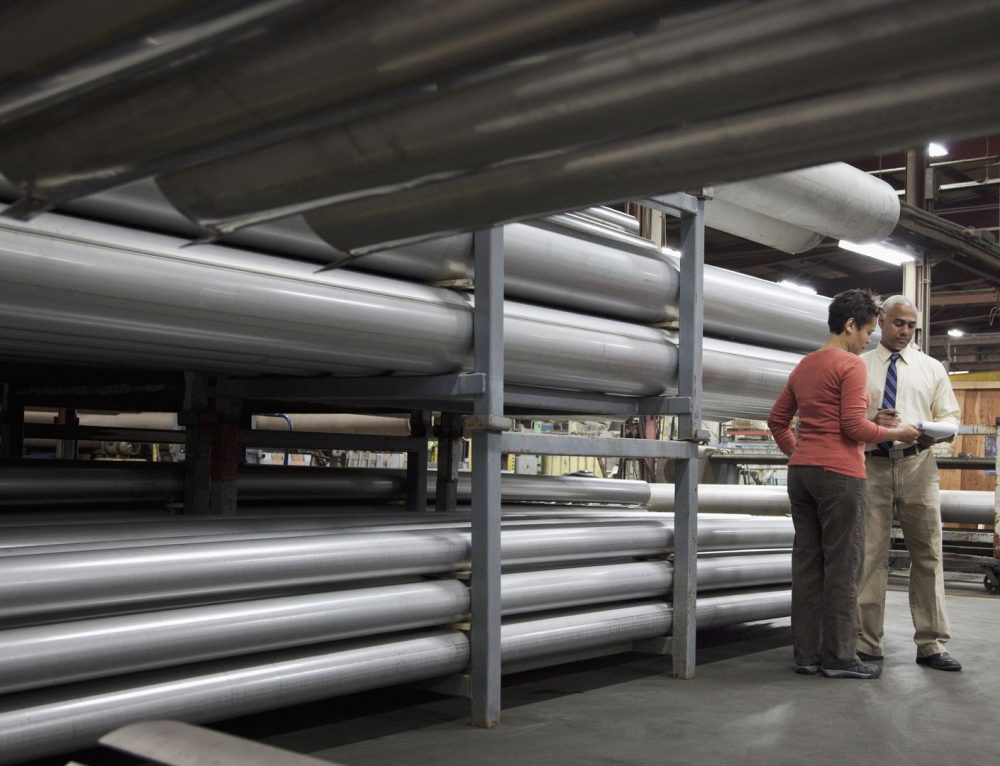The World Economic Forum’s Global Lighthouse Network highlights four durable shifts for a great reset in the manufacturing industry as it acts to remain competitive.
The World Economic Forum’s Global Lighthouse Network comprises 54 leading companies that have succeeded in the adoption of Fourth Industrial Revolution technology at scale, at individual sites and/or end-to-end across the value chain. This growth reflects the accelerating adoption of core Fourth Industrial Revolution technologies and their infusion in daily manufacturing and supply chain operations, as organizations act on a new urgency to remain competitive. Recent world events have only amplified this urgency, calling for a “Great Reset” across all sectors of the global economy. This Great Reset represents a decisive set of actions oriented towards delivering value not only to companies themselves, but to society as a whole. The agility and resilience of lighthouse organizations have shown that in light of adversity the same qualities that set them apart before the pandemic are, in fact, part of the strong foundation essential to withstanding the tremendous forces unleashed by the powerful waves of change it has brought forth. Likewise, these qualities are what equip them to drive the Great Reset among industrials.
The Global Lighthouse Network encompasses a diverse range of manufacturing contexts across varied industries. Because of this diversity, these frontrunner companies shine a far-reaching light that extends far and wide. Thus, the learning opportunities they offer are widely relevant and not limited to a specific type of manufacturer. Indeed, the accumulated experiences of lighthouses present a valuable set of learning opportunities to companies of any size looking to transform their operations. This light offers a dual benefit: it is illuminating both what is possible and what is required to succeed in the face of adversity.
Fourth Industrial Revolution transformation is not an arbitrary goal. Even before the massive disruptions imposed by the pandemic, the gap between Fourth Industrial Revolution frontrunners and others was growing rapidly. Now, global economic challenges emerging in the wake of recent world events mandate a Great Reset among industrials, and a number of “durable shifts” are proving key to achieving this. Four durable shifts in manufacturing and supply chain have emerged as particularly critical: agility and customer centricity, supply chain resilience, speed and productivity, and eco-efficiency.
Improved agility and customer centricity across the end-to-end manufacturing and supply chain facilitates faster recognition of customer preferences. This, in turn, enables quicker adjustments to manufacturing flows at nextgeneration, small-scale modular plants to allow higher levels of customization. Supply chain resilience provides a competitive advantage, requiring connected, reconfigurable n-tier supply ecosystems and regionalization. Speed and productivity are attained through increased levels of automation and workforce augmentation coupled with upskilling and reskilling efforts. Eco-efficiency is increasingly considered a must-have to remain in business and ensure compliance with an increasingly complex regulatory landscape.
Global Lighthouse Network members, both within the four walls of individual sites and end-to-end across the value chain, are demonstrating how to engage these durable shifts across varied industries and production contexts. In each case, lighthouses have shown how commitments to workforce development coupled with strategic, courageous deployment of Fourth Industrial Revolution technology can position organizations not only for sustainability, but also for success in light of the next normal. By engaging these durable shifts, frontrunner organizations are leading the way to the Great Reset. Even as they themselves realize the benefits of these transformative changes, they likewise chart a course that helps other companies navigate these rough waters. At the same time, these adaptations help ensure the kind of resilience that will be key to sustaining operations in the face of future challenges. Ultimately, lighthouses, as they lead the Great Reset among industrials, are key to helping shape and realize a stronger, more resilient and inclusive future in which creative entrepreneurism and technological innovation can benefit private enterprise and society at large, along with the natural environment.
Speed and productivity are attained through increased levels of automation and workforce augmentation coupled with upskilling and reskilling efforts. Eco-efficiency is increasingly considered a must-have to remain in business and ensure compliance with an increasingly complex regulatory landscape. Today’s challenges make clear that lighthouses are not at the end of their transformation journeys – they are only just starting to unlock the true potential of Fourth Industrial Revolution technologies.
Read the full report here.












